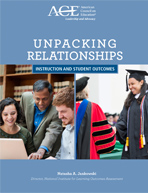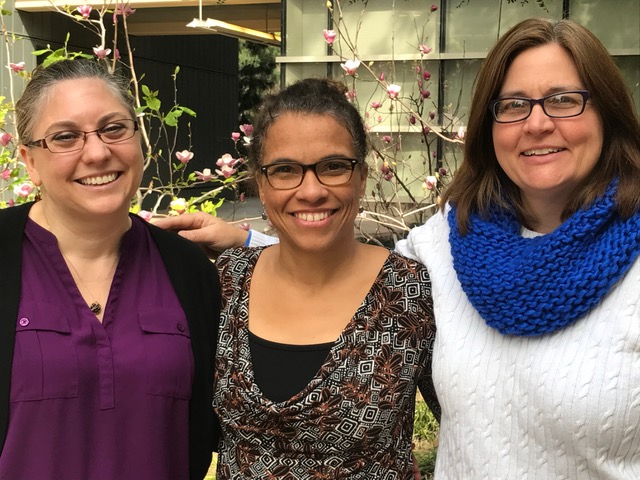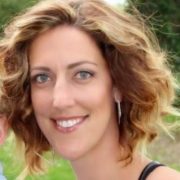Mentoring as a Graduate Student
/in Newsworthy/by maojacanBeing a mentor helps graduate students fight imposter syndrome, better understand their own goals and desires, and broaden their community.
[MORE]
Can we anticipate graduate student success if we can’t assess it?
/in Newsworthy/by maojacanHow we choose the next generation of scientists is at the root of a sustainable scientific enterprise. The true value of a PhD may therefore be in training leaders who can advance science, while also gaining the necessary skills to succeed both during and after graduate school. A successful graduate of a PhD program must be able to contribute expertise or knowledge to advance a particular field. To attain this goal, they must possess skills such as critical thinking, problem solving, perseverance, conviction, and adaptability. These traits cannot be assessed by certain quantitative measures which graduate schools rely on during the initial stages of the admissions process. This practice eliminates otherwise promising candidates from the pool of applicants considered competitive for graduate school.
[MORE]
Lenient Grades, Unreliable Grades
/in Newsworthy/by maojacanProfessors love to hate grade inflation, saying course marks aren’t as meaningful as they used to be. A new paper makes the case that easy grading is actually a symptom of poor assessment practices rather than a cause and that, either way, reducing leniency in grading may lead to more accurate assessment.
[MORE]
New Report! How Instructors’ Teaching Practices Influence Student Success
/in Newsworthy/by maojacan
A recent report explores the gap between evidence-based teaching practices and the methods that undergraduate instructors typically use. (Inside Higher Ed)
The report is titled “Unpacking Relationships: Instruction and Student Outcomes” and can be viewed in full here.
Female-only “Nerd” Dorm Helps Keeps Women in Engineering
/in Newsworthy/by maojacanComing from a small school district in Ohio where few girls took part in intensive mathematics or science classes, Callie Zawaski was an outlier. “I may have been the only person in my grade who was excited by STEM classes,” she says.
After being accepted into Virginia Tech’s College of Engineering, the school’s dean encouraged her to join a female-only dorm designed to keep women in engineering majors until graduation. Ms. Zawaski blanched at first.
“I really didn’t want to join up,” she says. “I was worried about being surrounded by nerds all the time.”
[MORE]
How to Handle Three Common Demands from Students in Large Courses
/in Newsworthy/by maojacanI recently had a conversation with a faculty member about the midterm feedback she had received from the students in her course. Her response to their suggestions echoed one I often hear in my work in faculty development: “Really, I can’t believe all the things students want me to do for them nowadays—they expect to be spoon-fed. This isn’t grade school!” As faculty we can indeed feel beset by student demands today. No wonder—the students attending our colleges and universities come from more diverse backgrounds than ever before, and they may be more focused on attaining credentials for a job than expanding their minds.
But not all of our students’ demands are unwarranted. Sometimes our students are expressing the needs and frustrations of novice learners in our fields. They know that something isn’t working for them, but they may not know the real basis for their problems nor the best way to fix them. In these cases, we need to translate their comments into the language of learning (Hodges and Stanton 2007). Only then can we decide whether—and how—to change our teaching to accommodate an apparent student need.
[MORE]
AAU Mini-Grant Recipients – Drs. Gina Poe, Megan McEvoy, and Erin Sanders: UCLA to Enhance Undergraduate STEM Education
/in Faculty News/by maojacanPictured above are Director of the mini-grant Dr. Gina Poe (middle), and Co-Directors Drs. Megan McEvoy (right) and Erin Sanders (left).
UCLA is among 12 universities nationally to be awarded a grant from the Association of American Universities to fund workshops on campus over the next year to assess all programs that support and retain undergraduate students in science, technology, engineering and mathematics (STEM).
Read more in the UCLA Newsroom.
Undergraduate Research Experiences for STEM Students: Successes, Challenges, and Opportunities (2017)
/in Newsworthy/by maojacanUndergraduate research has a rich history, and many practicing researchers point to undergraduate research experiences (UREs) as crucial to their own career success. There are many ongoing efforts to improve undergraduate science, technology, engineering, and mathematics (STEM) education that focus on increasing the active engagement of students and decreasing traditional lecture-based teaching, and UREs have been proposed as a solution to these efforts and may be a key strategy for broadening participation in STEM. In light of the proposals questions have been asked about what is known about student participation in UREs, best practices in UREs design, and evidence of beneficial outcomes from UREs.
Bringing Theory to Practice Workshop – Click Your Way to Inclusive Classrooms!
/in Announcements/by maojacani<Clicker or similar polling systems are tools that instructors can use to effectively implement active learning in the classroom. Well designed questions can provide instructors with real-time feedback to highlight misconceptions, increase curiosity, and prompt student peer discussion.
Come and learn how to set-up the interactive polling system using i<Clicker. This session will include getting the instructor kit installed onto your computer, getting students set-up correctly the first week, best practices for question design and polling use, and general troubleshooting and Q&A.
Sessions will be facilitated by Jonathan Rodgers, Deb Pires, and Kristin Strong.
Bring your laptop and a flash drive. RSVP here and let us know if you will need an instructor kit. Your TA can accompany you, but should not be sent in your place.
This workshop will be offered 3 times (choose one):
- Monday March 6: 10:00am – 11:00am Hershey Hall, Room 164
- Monday March 13: 1:00pm – 2:00pm Terasaki Life Sciences Building, 1100
- Tuesday April 4: 12:30pm – 1:30pm Terasaki Life Sciences Building, 1100
Meet Kristin Strong, Senior Technology Specialist at i>Clicker
Need help with i<Clicker? If you have a question or have experienced a technical issue and need assistance troubleshooting, please reach out to Kristin Strong. Kristin works closely with instructors across UCLA to quickly address any issues. Working with a support team, she can jump onto a screen-share to resolve your issue, troubleshoot over the phone, or set up an on-campus meeting. Please do not hesitate to contact Kristin at kristin.strong@macmillan.com.
- CIRTL Scholars have added to community knowledge about teaching and learning. They have designed and implemented a Teaching-as-Research investigation, and defended the findings to CIRTL learning-community peers. The significance of CIRTL Scholar Teaching-as-Research work is established through presentation and/or publication of the findings to all-university, regional, national, or international audiences.








